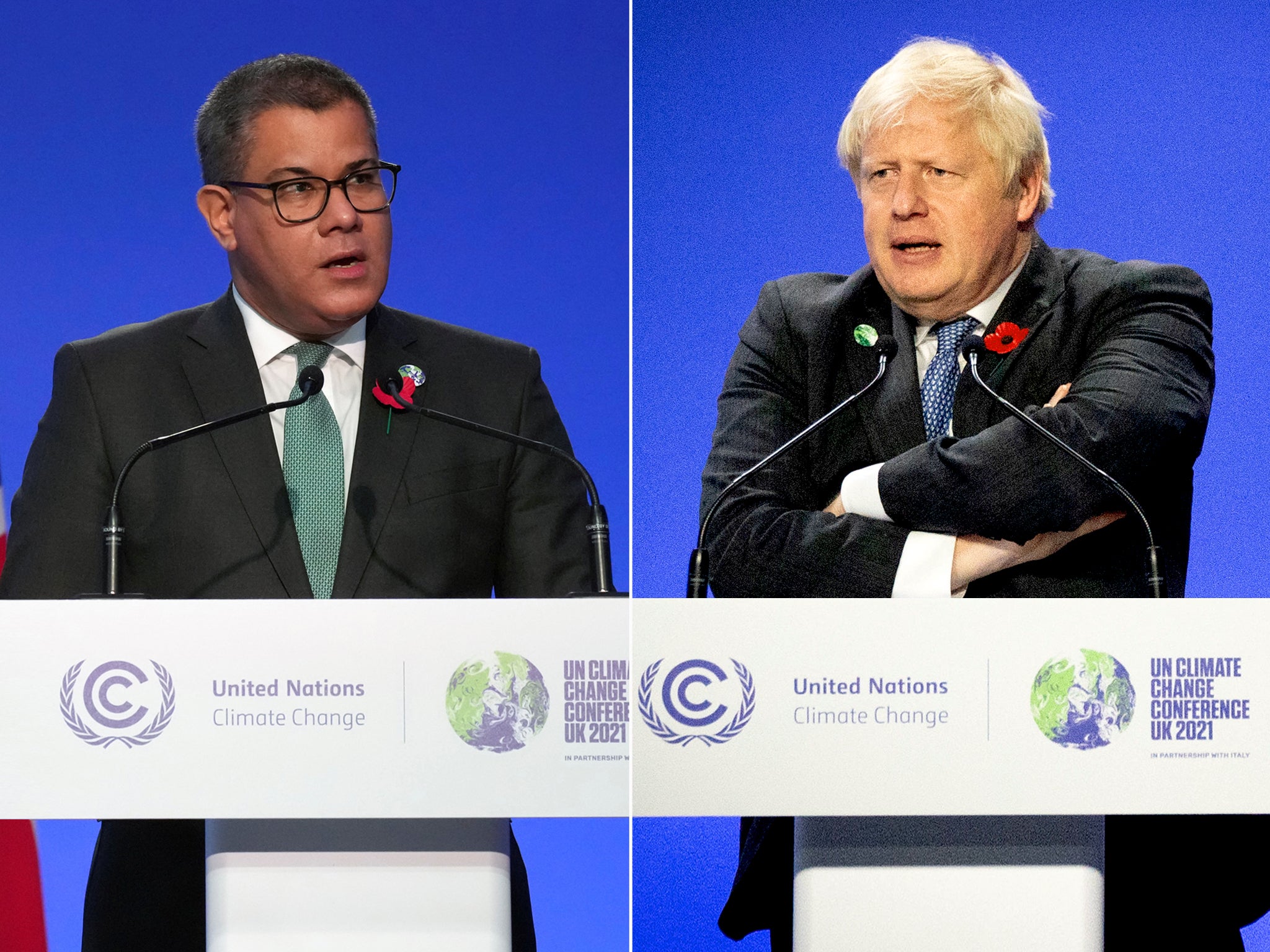The UK fell short as president of Cop26 – but it’s not too late to rescue the conference’s legacy
Unfortunately, the UK was missing in action when some of the most innovative steps were being taken, writes Natalie Bennett

As the dust settles on a Cop26 deal that left the target of keeping global warming below 1.5C on life support, one of the questions being asked is, “How did the UK presidency do?”
As the chair, Alok Sharma, demonstrated through his emotion in the final moments, he put his heart and soul into his role and deserves personal credit for this. A range of international delegates I spoke to at Cop26 all agreed on this point.
But the presidency isn’t just about one person, or even the dedicated team of civil servants behind them doing the diplomatic work. It is a position that demands leadership from the national government. And on that, the same delegates agreed the UK presidency was a failure.
That’s not just because Boris Johnson is regarded as a joke and an embarrassment – something his opening speech did nothing to counteract – and his government’s corruption scandals were a substantial distraction from what should have been a razor sharp focus on the climate emergency. It’s also not just down to an astonishing speech he gave on his “rescue mission” in the middle of the second week, saying that maybe “climate change couldn’t be fixed” – the worst possible message at that moment in the talks.
Unfortunately, the UK was missing in action when some of the most innovative steps were being taken, most notably the launch of the Beyond Oil and Gas Alliance (BOGA), led by Costa Rica and Denmark, with Wales also getting an honourable mention as a signatory.
Over the last couple of days, when the draft declaration was being watered down and watered down again, it demanded the presidency step forward with a dramatic intervention, something to turn things around. Signing up to BOGA would have been such a move, and would only reflect what the UK is supposed to be signed up to anyway – cutting oil and gas emissions in line with the Paris 1.5C target.
India is attracting a great deal of opprobrium for its crucial last-minute blackmail that watered down the reference to coal from “phase out” to “phase down”, which, as Fiji’s representative pointed out, made the clause essentially meaningless.
But that was only made diplomatically possible by the earlier removal, at the instigation of the US and EU, of funding for “loss and damage” – the recognition of the principle, increasingly embedded in law in the global north, that polluters must pay. It is the rich countries that have heated our planet – and done untold other environmental human damage – for which they should be paying reparation. The UK presidency should have been front and centre, working with the smaller and poorer nations to stop that happening, but it was invisible.
But it isn’t too late to rescue the legacy of Cop26. The UK remains president for the next 12 months, until Egypt formally takes over. Signing up to BOPA would be one step that the UK could take, combined with a call for other global north nations to follow suit.
Another would be to demand that at Cop27 the fossil fuel advocates who were so dominant in the halls in Glasgow are expelled. Astonishingly, the polluters together were the biggest delegation at Cop26, with 503 delegates (and those were just the official ones).
The numbers matter. In those final days, work goes on around the clock and the small island states, the most vulnerable nations with their tiny delegations, are at a major disadvantage, forced to slog on without sleep, while the fossil fuel advocates can work in relay.
To keep up to speed with all the latest opinions and comment sign up to our free weekly Voices Dispatches newsletter by clicking here
Despite the fact that 89 per cent of known coal reserves and 59 per cent of gas needs to be left in the ground if we’re to have any chance of avoiding catastrophic climate change, the fossil fuel industries have been left giant loopholes to drive a giant, smoke-belching, nature-destroying bulldozer through.
There was a tiny advance at Cop26 – fossil fuel companies were banned as sponsors. The next logical step is to ban them from the halls as the agents of death of the tobacco industry are banned from the World Health Organisation’s Framework Convention on Tobacco Control.
The UK should start a campaign now to build international consensus behind this obvious move. We must support the Egyptian presidency-in-waiting in delivering it. It won’t make up for the failures of Cop26, but it will be a start.
Natalie Bennett is a former leader of the Green Party and a peer in the House of Lords
Subscribe to Independent Premium to bookmark this article
Want to bookmark your favourite articles and stories to read or reference later? Start your Independent Premium subscription today.

Join our commenting forum
Join thought-provoking conversations, follow other Independent readers and see their replies